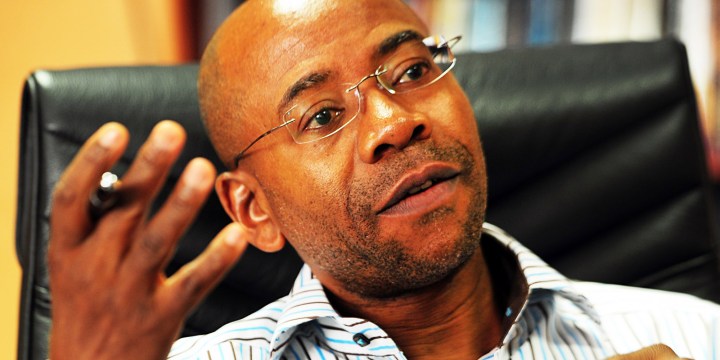SOCIOECONOMIC ACTION PLAN
Business, labour losing patience with Ramaphosa after expired deadline for new social compact

Cyril Ramaphosa has missed the deadline for delivering a new social compact in which business, labour and communities come together to draw up an action programme for building a better society.
Seeking consensus from the two biggest groups in society, business and labour, on ways to solve South Africa’s crippling socioeconomic problems has been the cornerstone of Cyril Ramaphosa’s presidency over the past four years.
Although Ramaphosa has largely garnered support from business and labour since his ascension to the Union Buildings in 2019 after receiving an election mandate, the goodwill he has enjoyed from the groups is starting to wane.
And their patience with Ramaphosa’s government is wearing thin, as there are growing disagreements about how to manage the economy and chart a path forward for the country.
Evidence of this can be seen in the difficulties that Ramaphosa is facing in finalising a new social compact, in which social partners (business, labour and communities) come together to draw up an action programme for building a better and more inclusive society.
Social compacts are common around the world. In Asia, social compacts are geared towards maintaining high levels of economic growth and production. In Europe, compacts tend to focus not only on production levels but also on the general wellbeing of the populace. And since 1994, social compacts in SA have focused on creating prosperity for all.
But since then, most quality of life and development indicators in South Africa have been heading in the wrong direction, jolting the government into needing a new and updated social compact that guides it in tackling daunting socioeconomic issues.
The economy has stalled and cannot create jobs. There are intolerable levels of corruption. The Covid pandemic has worsened poverty and inequality levels that were already stubborn. Households are facing a cost-of-living crisis. Crime rates are on the rise. Public services are failing.
The big promise
To address these problems, Ramaphosa promised, during his February State of the Nation Address (Sona), that a new social compact would be completed within 100 days. In doing so, he would seek help from his Cabinet, and representatives from business, labour and communities. But 100 days have come and gone, and a social compact has not been finalised. Social compact negotiations between all parties have gone awry.
The government has worked on a draft social compact framework, a 32-page document seen by DM168, which includes many priority actions to boost levels of investments and growth in the economy, increase employment, allow increased private sector participation in the economy and expand welfare support for the unemployed.
But the framework has been rejected by business, labour and community representatives at the National Economic Development and Labour Council (Nedlac). Ramaphosa wants to present a finalised social compact during his Sona address next year.
Big business has argued that the priorities in the framework are too many and fragmented. Labour representatives believe that the draft social compact framework doesn’t go far enough in protecting worker rights, removing unfair labour practices and protecting wages from the rising cost of living.
In his weekly newsletter on 25 July, Ramaphosa made it seem as though negotiations over the new social compact are progressing without disruptions or fundamental disagreements, especially on ideology. Ramaphosa argued that reaching an agreement on the social compact is still under way and disagreements are par for the course.
“…A new consensus can only be successfully implemented if there is full agreement on a common objective, the plan to achieve it, and a commitment by all partners to the plan’s implementation… To ensure better outcomes and impact, for implementation to be effective, this time we have to do better. Even if this means delaying the finalisation of the new comprehensive social compact until all social partners agree on the contribution they will make towards the betterment of society,” Ramaphosa wrote.
Social compact framework rejected
The draft social compact framework proposes that the private sector increase its investment targets and support the government’s goal of raising R1-trillion in new investments. The framework also requires businesses to increase their targets for the local sourcing of goods, reduce executive remuneration to narrow the pay gap between highest- and lowest-paid workers, enable worker representation on company boards and restrict retrenchment of workers – even if economic conditions turn for the worse.
Bonang Mohale, the president of Business Unity South Africa and a Nedlac member, says some of the measures proposed by the government in the framework usurp the powers of company management and boards. The local sourcing of goods, having worker representatives on boards and a moratorium on retrenchments are matters that should be left to companies to decide on, says Mohale.
“The proposals are too generic and some are impossible to implement. They lack tight timeframes, systems and processes to implement them. If we agree to commit to the proposals, the compact won’t have an impact. It will gather dust,” he told DM168.
“Business has always been committed to getting the social compact finalised within 100 days. We have now missed the deadline because the government has delayed the process and drafted its own compact version that we disagree with…”
The social compact framework document also calls for higher taxes to fund and expand South Africa’s welfare system – such as an income grant – which business says cannot be discussed without a cost input from the National Treasury.
Labour has also been angered by the framework, mainly the recommendation that entry-level wages in South Africa be lowered towards the global average, and reforming labour laws to make it easier for small businesses to comply with the requirements of hiring and firing.
Matthew Parks, the parliamentary coordinator for labour federation Cosatu and Nedlac member, told DM168: “Whilst Cosatu supports the principle of a social compact, we will not support one that sacrifices the hard-won rights of workers…
“It [the social compact] must be premised upon progressive principles, protect workers, provide meaningful relief and solidarity to the poor and unemployed, and address the … obstacles to growing the economy.”
And community representatives have argued that the framework does not focus enough on targeted initiatives to improve early childhood development, education standards, the eradication of pit latrines in poor communities, making a dent in poverty and hunger levels, and adequately addressing the scourge of gender-based violence.
“This is a shocking and botched effort at clubbing together a social compact. It’s big on vision but thin on the specifics of fixing problems,” says a community representative who is privy to Nedlac discussions. DM168
This story first appeared in our weekly Daily Maverick 168 newspaper, which is available countrywide for R25.




















 Become an Insider
Become an Insider
From the ANC we get problem statements, never any solutions. They can’t build things, they can’t fix things and when the brown hits the fan they are missing in action.
But in the background they destabilise everything by sticking to toxic ideology.
A total inability to see how they are actually the problem here.
A political organisation that is dominated by communists, has the communist party and the labour unions as alliance partners, will never seek the views or assistance of business and the community.
They do not only need to be removed at the next election. Their vote percentage level has to be low enough to prevent a coalition with their allied beret wearing colleagues.
So while all these groups each do nothing but proclaim THEIR rights and THEIR privileges and what more THEY demand, our youngsters of all races and from all walks fly off and probably will not come back. Whether they are doctors or yacht deckhands, they have seen enough not to see a future.
Just like the ANC, business and labour seem unable to rise above their sectional interests. As if the KZN and Gauteng looting and destruction last year were not enough to make us realise that the national interests are critical to our sectional interests